36 Arguments for the Existence of God - [57]
“Do the women get to wear amazing fur hats?” Roz asked.
“No, the women just dress dowdy, in a way guaranteed to call no attention to themselves.”
“I wonder if I’ll pass,” Roz said. She was wearing the same long crushed-velvet skirt that she’d been wearing when Cass had first met her. He’d warned her about the laws of modesty. She didn’t have to wear her hair covered, since she wasn’t married, but Cass and she had decided that the dreadlocks had best be concealed, so she’d bought a peacock-blue kerchief, and in a restroom at their last pit stop had looped her hair up in it in a sort of turban. For their part, Cass and Klapper had come supplied with white satin skullcaps in their pockets that Jonas Elijah Klapper had supplied, “Ronald’s Bar Mitzvah June 12 1977” embossed in gold on the inside.
“I think the goal is just not to offend them. At best, they’ll think you’re a stray that the Lubavitchers have converted.”
“The Lubavitchers. They’re the ones with the mitzvah-mobile, right? They used to come to Frankfurter when I was an undergraduate, lassoing boys to put on phylacteries and girls to light the Sabbath candles.”
Cass had driven past his bubbe’s house without announcing it, slowing down slightly-they were going less than fifteen miles an hour anyway- and trying to take it in. He’d always known it as his bubbe’s house. His grandfather had died before he was born. It was a modest tract house, and it made him happy to see the number of toys crammed into its front yard now. He hoped the children who owned these toys were enjoying better childhoods than his mother had in that house. He felt a stab of love for that unhappy woman, his bubbe, who had had such a fine eye for discerning the flaws in others, the slights to herself, reacting with gleeful contempt for the former and unstanchable rage toward the latter, but who had, for some mysterious reason, loved and always forgiven her little Chaim. One of his earliest memories-it might have been his first- was his bubbe’s collapsing at the sight of him when they’d come for a visit after he’d had his first haircut. She had shrieked as if slashed by an assassin’s blade, clutching at her chest, berating his mother. He’d never forget it, it had scared him so badly.
“Something else I remember from when I used to visit here as a kid is that they don’t cut the boys’ hair until a certain age, I think maybe three or four.”
“Is that a Samson-and-Delilah thing?”
“No,” said Klapper. “The ceremony of the first haircut is called an upshneering, and it is celebrated when the male child turns three, as one of life’s passages, like the Bar Mitzvah, which is celebrated almost universally among Jews, even the most secular, though its materialistic trappings have made it a parodical spectacle far from its original intent of signaling the Jewish male’s full attainment of selfhood, with all of its attending moral and spiritual responsibilities.”
An interlude of silence followed. Jonas was recalling his own modest Bar Mitzvah on the Lower East Side. His father had deserted them that year. The man had been so insignificant that it had taken Jonas several days to realize what was different in the household and to ask, “Where’s Pop?” Jonas’s Bar Mitzvah had been celebrated with a bottle of schnapps in their shul on Eldridge Street, a plate of his mother’s delectable sponge cake, and some store-bought eier kichel-egg cookies. But Jonas had sung his haftorah faultlessly from memory. His d’var Torah, the traditional Shabbes speech in which moral lessons are drawn from the weekly portion of the Torah, had also been delivered without notes, and, according to his mother and older sisters, grown men had wept.
“According to Yehuda Ickel, the leading secular authority on Kabbala, with whom I have often discussed such matters, the Hasidic custom can be traced back to the sixteenth-century Kabbalists who inhabited the mystical city of Safed, in northern Palestine, or S’fat, as it is called in Hebrew, long one of the spiritual hot zones, receiving a disproportionate radiation of the Elevated Mysteries from the Seminar from On High. The dominant figures were Moses Cordovero, the tireless taxonomizer of Kabbala, and his student Isaac Luria, known also as the Ari, meaning literally ‘the Lion’ and derived from the acronym for ‘Ashkenazi Rabbi Isaac.’ You will also see him referred to as Arizal. Arizal was the most fecund visionary to appear in Jewish mysticism, with all that would emerge from the inspired city of S’fat forever after bearing his imprimatur, though he had written, in his lifetime, but a few poems, and his oral teachings were…”
“What are all those signs?” Roz cut him off.
Nobody answered her. Though Cass was grateful to Roz for choking back her laughter at Professor Klapper’s mistaking her for a Rastafarian-he knew her well enough to know that that was the only explanation for her silence-he hated the casual tone she had adopted toward him. She was treating him as if he were anyone else. She was even addressing him by his first name. Cass could feel Professor Klapper, in the passenger seat in front, bristling. But, remarkably, he kept his temper, which might have been due to the exaggerated respect he seemed to have developed for Cass recently, taking delight in calling him Reb Chaim when they were alone. Or maybe he didn’t want to mess with a Rastafarian.
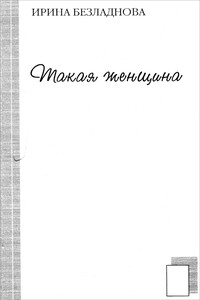
В книге рассказывается история главного героя, который сталкивается с различными проблемами и препятствиями на протяжении всего своего путешествия. По пути он встречает множество второстепенных персонажей, которые играют важные роли в истории. Благодаря опыту главного героя книга исследует такие темы, как любовь, потеря, надежда и стойкость. По мере того, как главный герой преодолевает свои трудности, он усваивает ценные уроки жизни и растет как личность.
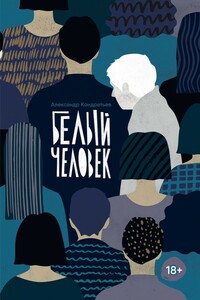
В городе появляется новое лицо: загадочный белый человек. Пейл Арсин — альбинос. Люди относятся к нему настороженно. Его появление совпадает с убийством девочки. В Приюте уже много лет не происходило ничего подобного, и Пейлу нужно убедить целый город, что цвет волос и кожи не делает человека преступником. Роман «Белый человек» — история о толерантности, отношении к меньшинствам и социальной справедливости. Категорически не рекомендуется впечатлительным читателям и любителям счастливых финалов.
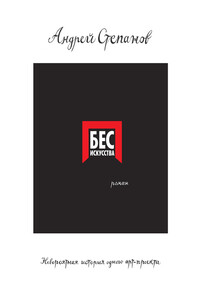
Кто продал искромсанный холст за три миллиона фунтов? Кто использовал мертвых зайцев и живых койотов в качестве материала для своих перформансов? Кто нарушил покой жителей уральского города, устроив у них под окнами новую культурную столицу России? Не знаете? Послушайте, да вы вообще ничего не знаете о современном искусстве! Эта книга даст вам возможность ликвидировать столь досадный пробел. Титанические аферы, шизофренические проекты, картины ада, а также блестящая лекция о том, куда же за сто лет приплыл пароход современности, – в сатирической дьяволиаде, написанной очень серьезным профессором-филологом. А началось все с того, что ясным мартовским утром 2009 года в тихий город Прыжовск прибыл голубоглазый галерист Кондрат Евсеевич Синькин, а за ним потянулись и лучшие силы актуального искусства.
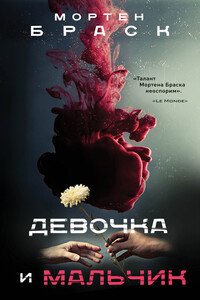
Семейная драма, написанная жестко, откровенно, безвыходно, заставляющая вспомнить кинематограф Бергмана. Мужчина слишком молод и занимается карьерой, а женщина отчаянно хочет детей и уже томится этим желанием, уже разрушает их союз. Наконец любимый решается: боится потерять ее. И когда всё (но совсем непросто) получается, рождаются близнецы – раньше срока. Жизнь семьи, полная напряженного ожидания и измученных надежд, продолжается в больнице. Пока не случается страшное… Это пронзительная и откровенная книга о счастье – и бесконечности боли, и неотменимости вины.
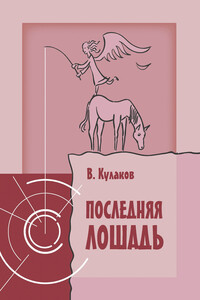
Книга, которую вы держите в руках – о Любви, о величии человеческого духа, о самоотверженности в минуту опасности и о многом другом, что реально существует в нашей жизни. Читателей ждёт встреча с удивительным миром цирка, его жизнью, людьми, бытом. Писатель использовал рисунки с натуры. Здесь нет выдумки, а если и есть, то совсем немного. «Последняя лошадь» является своеобразным продолжением ранее написанной повести «Сердце в опилках». Действие происходит в конце восьмидесятых годов прошлого столетия. Основными героями повествования снова будут Пашка Жарких, Валентина, Захарыч и другие.
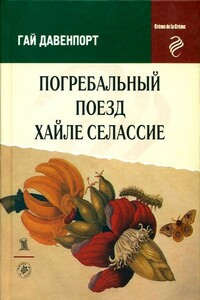
В литературной культуре, недостаточно знающей собственное прошлое, переполненной банальными и затертыми представлениями, чрезмерно увлеченной неосмысленным настоящим, отважная оригинальность Давенпорта, его эрудиция и историческое воображение неизменно поражают и вдохновляют. Washington Post Рассказы Давенпорта, полные интеллектуальных и эротичных, скрытых и явных поворотов, блистают, точно солнце в ветреный безоблачный день. New York Times Он проклинает прогресс и защищает пользу вечного возвращения со страстью, напоминающей Борхеса… Экзотично, эротично, потрясающе! Los Angeles Times Деликатесы Давенпорта — изысканные, элегантные, нежные — редчайшего типа: это произведения, не имеющие никаких аналогов. Village Voice.